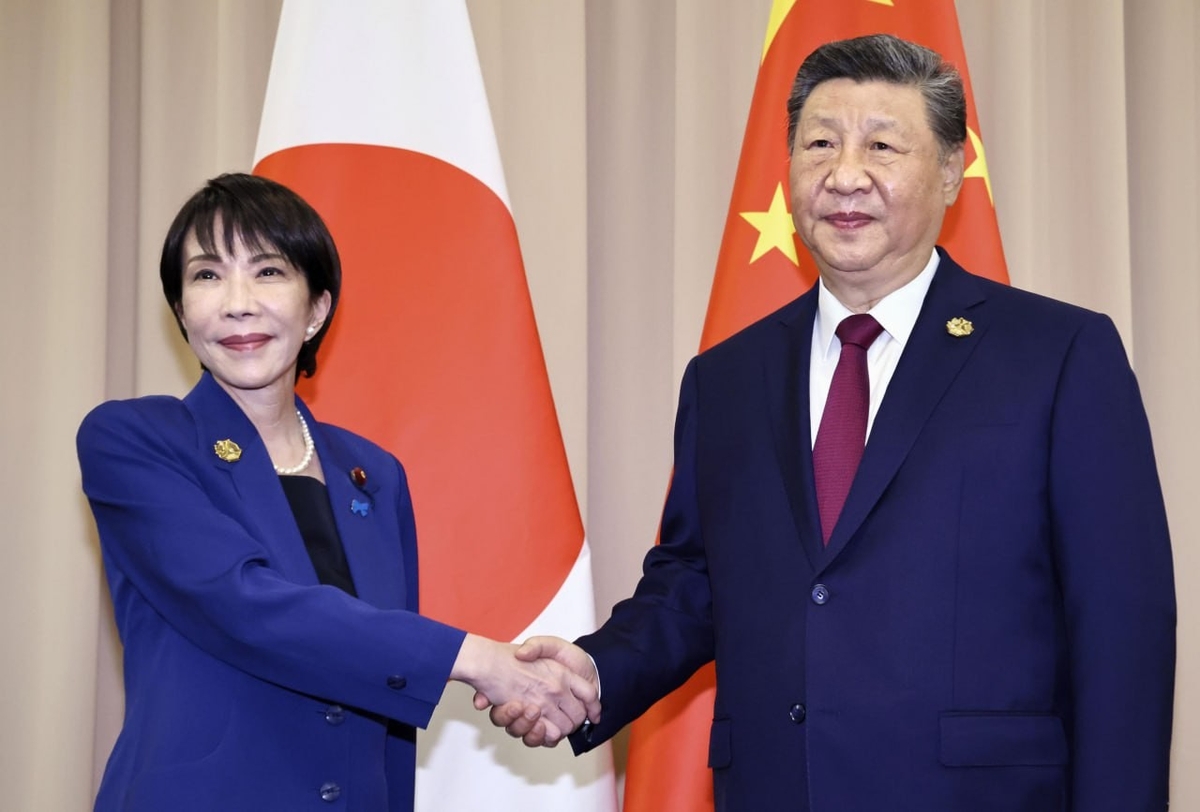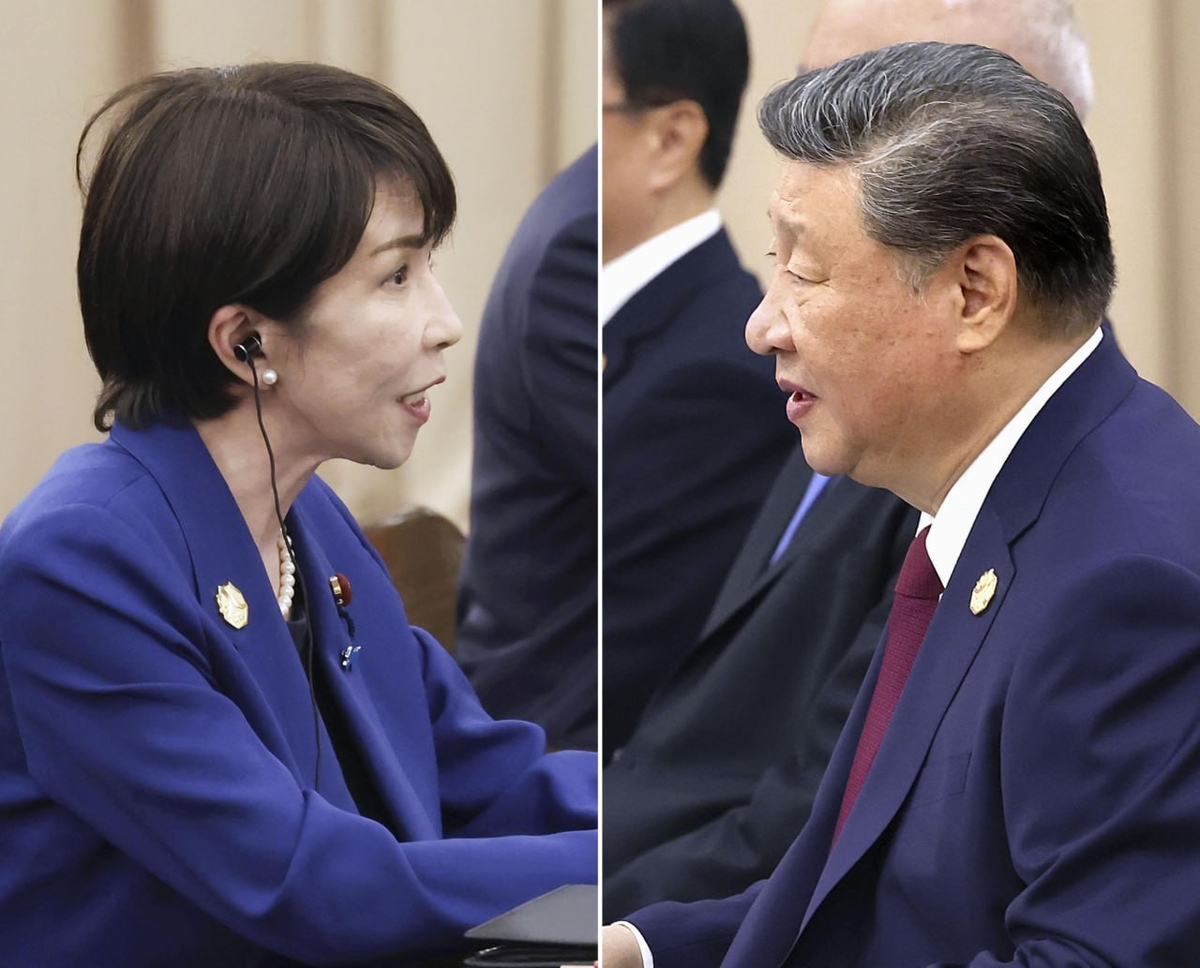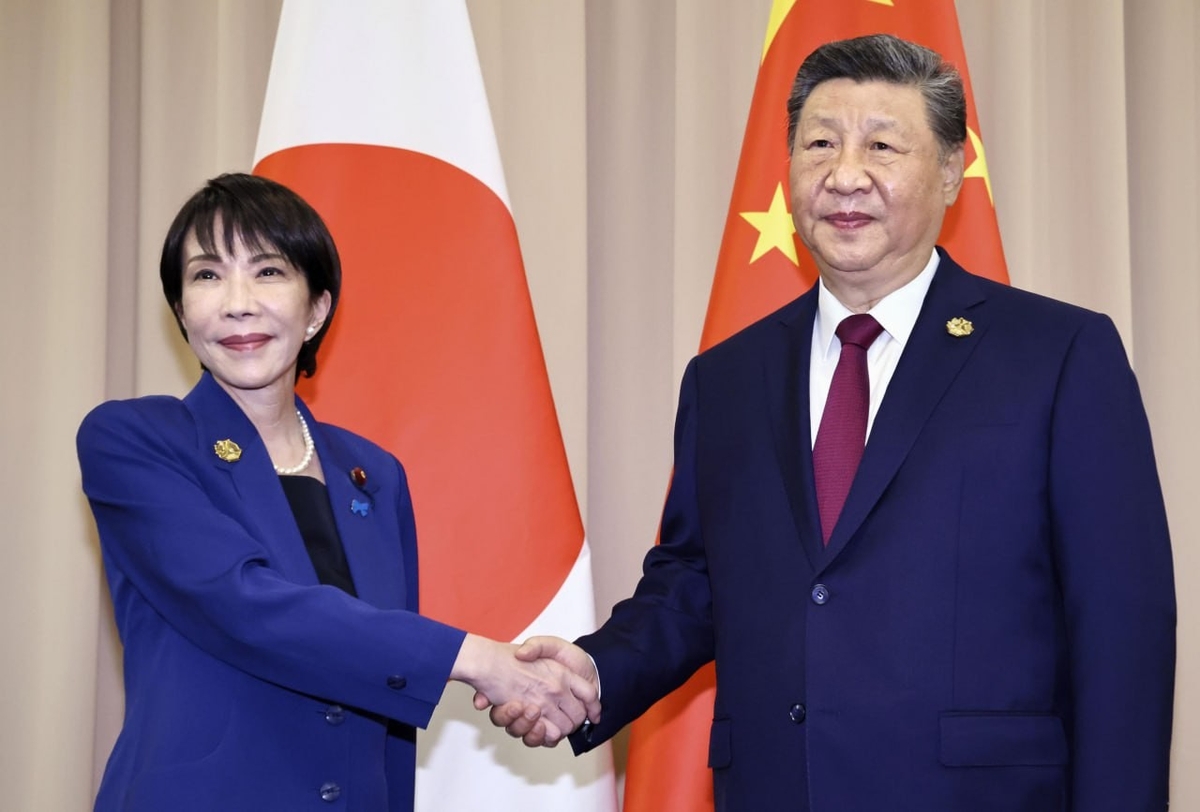
(Tokyo, Beijing, Seoul = Yonhap News) Correspondents Park Sang-hyun and Jeong Seong-jo and Reporter Kim Hyeon-jeong = Chinese President Xi Jinping and Japanese Prime Minister Sanae Takaichi held their first summit on the 31st and shared their principled stance of maintaining communication to develop bilateral relations.
According to China's state-run Xinhua News Agency and Japan's NHK, President Xi and Prime Minister Takaichi held a summit meeting in Gyeongju that afternoon on the sidelines of the Asia-Pacific Economic Cooperation (APEC) summit.
It has been about a year since Xi Jinping met with the Japanese prime minister, and this is the first meeting between the two leaders.
In his opening remarks, Xi Jinping said,"I would like to maintain communication with you (Prime Minister Takaichi) and work together to promote the development of Sino-Japanese relations in the right direction."
He emphasized,"The world is currently experiencing accelerated changes that have not occurred in 100 years, and the international and regional situations are chaotically intertwined." He added,"China and Japan are important neighbors, and promoting the long-term, healthy, and stable development of China-Japan relations is in line with the universal expectations of the peoples of the two countries and the international community."
He continued,"After taking office, you declared, 'China is an important neighboring country of Japan, and we will build constructive and stable relations with China and comprehensively promote strategic mutually beneficial relations between the two countries,'" and evaluated,"This showed the importance you and the new cabinet place on China-Japan relations."
He said,"China is willing to jointly safeguard the political foundation of bilateral relations with Japan in accordance with the principles and direction established in the 'Four Major Political Documents' and promote China-Japan strategic mutually beneficial relations," adding,"We are willing to dedicate ourselves to building constructive and stable China-Japan relations that meet the demands of the new era."
The four major political documents between China and Japan that Chairman Xi Jinping mentioned are the "China-Japan Joint Communiqué" announced when diplomatic relations were established in 1972, the"China-Japan Treaty of Peace and Friendship" in 1978, the"China-Japan Joint Declaration on Efforts to Establish a Friendly Cooperative Partnership for Peace and Development" in 1998, and the"China-Japan Joint Statement on Comprehensively Promoting Strategic Mutually Beneficial Relations" in 2008.
These documents contain the"One China" principle, mutual respect for sovereignty and territorial integrity, and opposition to the pursuit of hegemony. This is also a card China frequently plays against Japan, which maintains close ties with Taiwan.
This is interpreted as Chairman Xi indirectly emphasizing to Prime Minister Takaichi, who is considered a"hard-line conservative," that he should adhere to previously agreed-upon diplomatic principles and refrain from interfering in China's internal affairs.

Prime Minister Takaichi expressed his willingness to engage in honest dialogue to resolve"tasks" between the two countries, while also drawing attention by actively mentioning sensitive issues such as China's human rights and the East China Sea issue.
In his opening remarks, he emphasized,"I want to comprehensively promote strategic mutually beneficial relations with China to create a constructive and stable relationship," and "China is an important neighbor to Japan, and both countries have important responsibilities for the peace and prosperity of the region and the international community."
The "strategic mutually beneficial relationship" commonly mentioned by both leaders is a basic principle of bilateral relations agreed upon by former Japanese Prime Minister Shinzo Abe and former Chinese President Hu Jintao during a summit meeting during his visit to China in 2006. It contains the intention that the two countries will prioritize improving relations rather than competition and confrontation.
Prime Minister Takaichi continued,"There are many pending issues and challenges between Japan and China, but we aim to reduce them and increase understanding and cooperation to achieve concrete results," and emphasized,"We also aim to deepen our summit relationship by repeatedly having frank conversations with Chairman Xi."
After the meeting, Prime Minister Takaichi met with Japanese reporters and further disclosed the contents of the meeting, saying,"I conveyed to President Xi my concerns about China's human rights issues, including Hong Kong, and the East China Sea (an area of territorial dispute)."
He explained,"We discussed rare earth elements and exchanged opinions on North Korea," and "I also asked China to respond positively regarding the resumption of imports of Japanese seafood."
Even before being elected prime minister, Prime Minister Takaichi had been viewed as a"right-winger" in China due to his visits to the Yasukuni Shrine and his past hard-line remarks on the South China Sea territorial dispute and the discharge of contaminated water from nuclear power plants.
There is also analysis that the fact that the city mayor sent a congratulatory message to Prime Minister Takaichi, who took office on the 21st, in the name of his second-in-command, Premier Li Qiang, rather than in his own name, contrary to previous custom, was a measure taken in a similar context.
State-run media outlets reported on Prime Minister Takaichi's election, directly criticizing him for his anti-Chinese tendencies and for denying the Nanjing Massacre and visiting the Yasukuni Shrine, which run counter to Chinese public sentiment.
The Chinese government did not announce whether or not it would hold the summit until the day of the summit, leading some to interpret this as China expressing its discomfort.
Even in the speeches of the mayor of the city that were made public to the press that day, there was no separate mention of congratulations on the inauguration.
Meanwhile, according to Japan's Kyodo News, the China-Japan summit concluded after about 30 minutes. This represents a mere one-third of the approximately 100-minute duration of the previous day's US-China summit between US President Donald Trump and Chinese President Xi Jinping.

